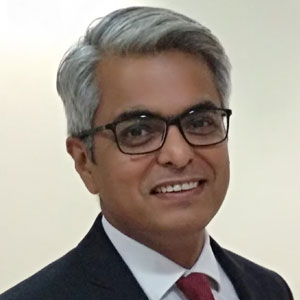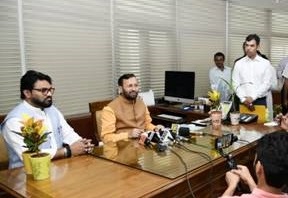The unprecedented COVID-19 has triggered major upheavals and compel organizations to accelerate their digital transformation plans to get future-ready. Suddenly, the Chief Information Officers (CIOs) ‘ role has fast evolved from a technology leader to a cross-functional business leader. If it was not entirely apparent before the pandemic, then it is now pellucid. Businesses depend on them to continue to manage disruptions, build resiliency, deliver an exceptional customer experience and seamless business continuity. CIOs have an enormous responsibility on their shoulders today, much greater than pre-pandemic times. And hence need a strong strategic blueprint to achieve successful transformations.
However, there are several challenges that CIOs need to overcome to unlock the real value of digital transformation of their organizations. These may include integrating new technology with existing legacy applications, shortage of digital and information security talent, and re-invent IT with new operating models, among others.
In this backdrop, it is a must for CIOs and organizations to devise a careful transformation strategy keeping in mind the factors such as business requirements, customer-specific needs, employee engagement models, among others. (See: CIOs’ digital transformation focus accelerates recovery for IT firms)
Let’s look at some of the essential elements that CIOs must keep in mind before embarking on the digital transformation journey.
Assess your business needs
While it is true that digital transformation can bring maximum and sustainable benefits, it is also true that every organization’s technology needs are different. For instance, some of the transformation programs are specifically designed to manage accounting related issues, while others may involve automating operational processes and customer interface channels.
It becomes critical for organizations to do not to compare apples with oranges. So, understand your unique needs, consult with other C-level executives, prioritize and analyze the approach at the most granular level while preparing your digital transformation blueprint.
Develop a strategy for effective change management
In our interactions with many technology leaders last year, it became evident that having a robust change management strategy is of utmost importance for any digital transformation blueprint. The executive leadership must take accountability and drive an effective change management plan before undertaking any digital transformation route.
“Today’s enterprises need to secure access to their organizational resources, regardless of the user or application environment. This means that the biggest challenge is about adapting to the modern distributed workplace and embracing a mobile workforce while protecting people, devices, and data, irrespective of their locations.”
“Digital transformation is a journey rather than an endpoint. Every aspect of the journey needs to be assessed well. A successful transformation strategy leverages the value of diverse processes, people, and technologies. Organizations need to democratize IT to make it accessible for all stakeholders.”
While it is understandable that unprecedented events such as COVID-19 leave no time for organizations to prepare well for suden operational changes, CIOs need to provide directions and act as a glue `to successfully transform their IT architectures.
Ensure that you have a good-formulated plan to convey the change in the organization, its impact on processes, the advantages it brings, and the necessary training plan to make your people ready.
Build a robust governance framework
In the present distributed workforce scenario where organizational networks may have several unidentified access points, security and governance cannot be taken lightly at any cost. Every digital transformation initiative should incorporate plans to have full network visibility into applications, devices, cloud platforms, and other aspects.
CIOs should collaborate with other business leaders to define a relevant and robust governance framework that proactively manage and mitigate risks and forefront innovation.
Choose partners, not vendors
Always ensure you are working with partners and not just vendors when deploying a new technology solution. Training your internal teams to understand and maintain control over new technologies and solutions is very important.
This must-have digital transformation blueprint element will let you test and experiment with new ideas and get detailed information on all your future technology requirements.
Integrate smartness in your digital transformation roadmap
Digital transformation has become a much broader concept than just incorporating digital prowess in every aspect of the business. Data is the new lifeline for organizations. In such a scenario, technologies such as artificial intelligence, automation, and smart analytics should be seared wherever required to meet the desired outcome with speed, agility, and secured infrastructure.
The new operating model should enable businesses to identify alternatives. It should equip organizations to harness the potential of various cutting-edge technologies to deliver stakeholder expectations, augment collaboration and efficiency.
“While there may be several ways to transform operations digitally, process testing can help accomplish which method is best and more suited to achieve a definitive outcome. Many transformation journey’s end in suboptimal benefits, i.e., they don’t give the results they promise. That’s why you need a ‘method’ to transform. Process excellence efforts give you a holistic outlook for your transformation efforts.”











0 Comments